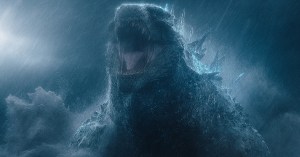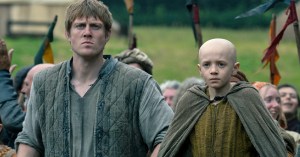Travis Knight’s Five Favorite Films
The Director of Kubo and the Two Strings Talks the Emotional Power of Film, Childhood Loneliness, and How One TV Show Saved the World.
by RT Staff | August 17, 2016
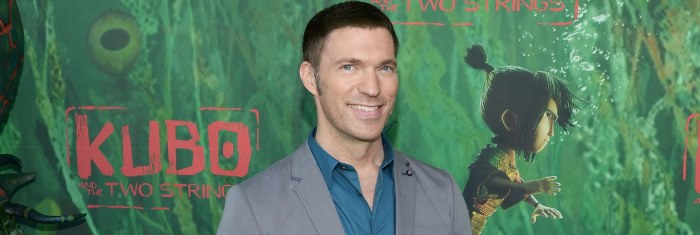
Photo by Getty Images / Matt Winkelmeyer / Stringer
Travis Knight served as the lead animator on the popular family films ParaNorman, The Boxtrolls, and Coraline, but this Friday, he makes his directorial debut with Kubo and the Two Strings. Rotten Tomatoes learned how his favorite films (and one TV show) contributed to his work on this and his past adventures. See the full list here:
 96%
96%
An utter masterpiece from the great Akira Kurosawa. Curiously, a Dashiell Hammet novel provided the inspiration for this film. I love that an American pulp novel from the 1920s was the spark for a staggering work of genius from Japan over three decades later. It demonstrates how art can transcend barriers across time, space, and culture and speak to us in a meaningful way. Yojimbo was remade as Sergio Leone’s spaghetti western classic A Fistful of Dollars, which I saw and loved long before I knew the original even existed. But when I discovered Yojimbo, it was like a gift from the universe. Everything else paled in comparison. Yojimbo is part western, part gangster noir, part samurai story, all awesome. It’s so good. Plus, if Kubo’s dad looks a wee bit like Kurosawa’s resplendent muse Toshiro Mifune, that’s not necessarily a coincidence.
 83%
83%
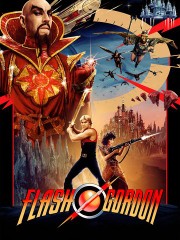
A gloriously ludicrous slice of 1980s cinematic fromage. Between the infectious Queen soundtrack, eye-popping Technicolor special effects, super hot Italian space princess, outrageous production and costume design, a deranged Max von Sydow spitting eminently quotable lines, and a leading man whose principle qualification was being a Playgirl centerfold, this movie had it all. I must’ve watched it fifty times when I was a kid. It was on a near-constant loop in our living room Betamax. One of the great many things I love about being a father is sharing my beloved childhood experiences with my kids. I was so giddily excited to watch this movie with my children when they were old enough. I couldn’t wait. They turned it off halfway through. I spent the next twenty minutes trying to convince them how awesome it was. They weren’t having it. My kids have terrible taste.
 78%
78%
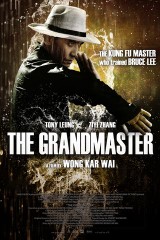
A visual genius working at the height of his powers. For emotional heft, this film can’t compete with Wong Kar Wai’s heartbreaking In the Mood for Love, but just try keeping The Grandmaster’s gorgeous imagery from being seared into your brain. The cinematography and choreography are exquisite. They’re just poetry. I was absolutely transfixed watching this film during the early stages of Kubo’s production cycle. After I picked my jaw off the floor I completely reconsidered all of Kubo’s action scenes. We had to step up our game. Wong Kar Wai had raised the bar to soaring, impossible new heights. The terrific filmmaker Zhang Yimou — who himself made two flawless action epics (Hero and House of Flying Daggers) — once said that every boy wants either a train set or to make a martial arts movie. I never had a train set. After seeing The Grandmaster, I have a feeling Wong Kar Wai didn’t either.
 99%
99%

This is the first movie that moved me to tears. I saw this in the theater with my mother when I was eight years old. I was a pretty lonely kid, who made friends slowly when I made them at all. So when I saw this masterwork in a darkened room, surrounded by strangers, spellbound by the flickering world onscreen that painted a devastating portrait of childhood loneliness, it felt like someone had ripped out my insides. I was sobbing in my mom’s arms, aware on some level that what I was watching was completely fake, but on another level was more real than anything I had ever felt or understood. It was the first time I became consciously aware of the power of film to make us feel something. Something I wasn’t even aware of was roiling around inside me. E.T. introduced me to the profound and melancholic truth that love and pain go hand in hand, that love both gives us strength and makes us vulnerable. But, above all, it made me understand that love heals us and gives our lives meaning. E.T. introduced me to an idea that, over thirty years later, would beat at the heart of my directing debut. An eight-year-old me wasn’t prepared for any of that. But watching this movie, clutching my mother’s arm, an overwhelming feeling of empathy washed over me, and it reminded me that I wasn’t alone after all. Someone out there felt just like I did. “Ouch” indeed.
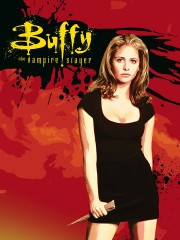
Ok, I know this one’s cheating. I don’t care. So it’s not a movie, so what? It did start as a movie, so it totally counts. No TV show has meant more to me than Buffy the Vampire Slayer. Stop laughing, I’m serious. It’s one of the greatest things ever created in the history of mankind. I said stop. How dare you?! I will fight you! I will fight you and I will win. It’s the best. Every right-thinking person knows that. When Buffy was on the air, I recorded every single episode on my TiVo. I’m pretty sure my DVR thought I was a fourteen year-old girl. Whatever. The show was incredible. It refused to be pigeonholed. It defied, merged, bent, and blended genres, masterfully commingling fantasy and reality. It dealt with issues of real substance. It treated its audience intelligently, with the utmost respect. Over a decade after it went off the air, it still had residence in my head and heart, and served as a model for what Kubo became: real life wrapped in metaphor. Like Buffy, we explore triumph and tragedy, loss and healing, and compassion, and forgiveness through the stylized prism of fantasy. We acknowledge that part of life… is death. That lives can be thrown away and lost and upended in an unfair and random act of casual violence, without the grandeur and rousing speechifying often found in heroic movie deaths. People we love are often ripped away from us, in an instant. And we need to find a way to reconcile that a part of life is struggle, and it has a cost. Kubo and the Two Strings, like life, like Buffy, is wonderfully bittersweet. So thank you, Joss Whedon, for giving me so much high-spirited joy and gut-wrenching heartache. You saved the world. A lot.


